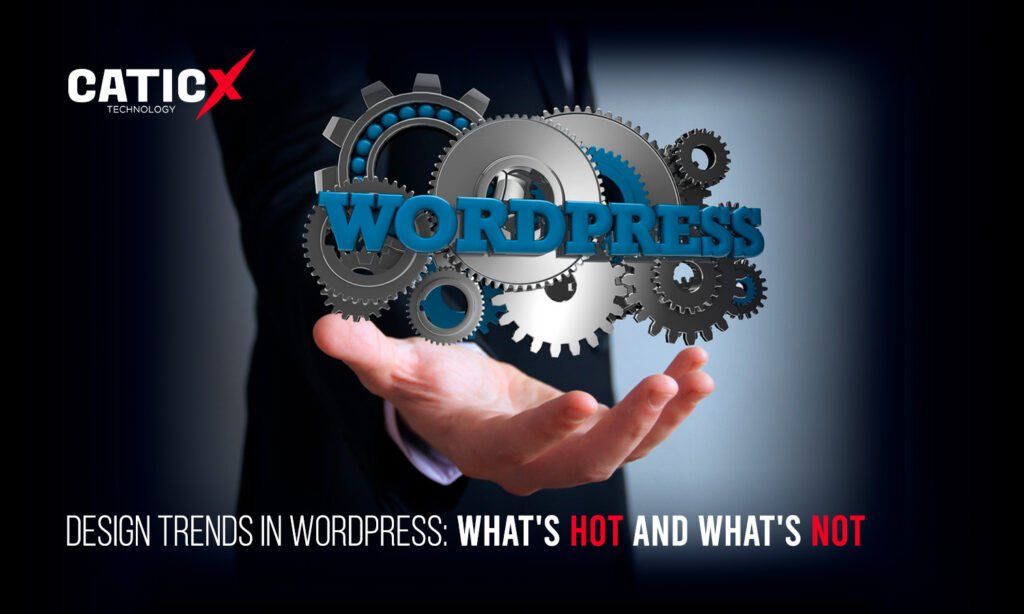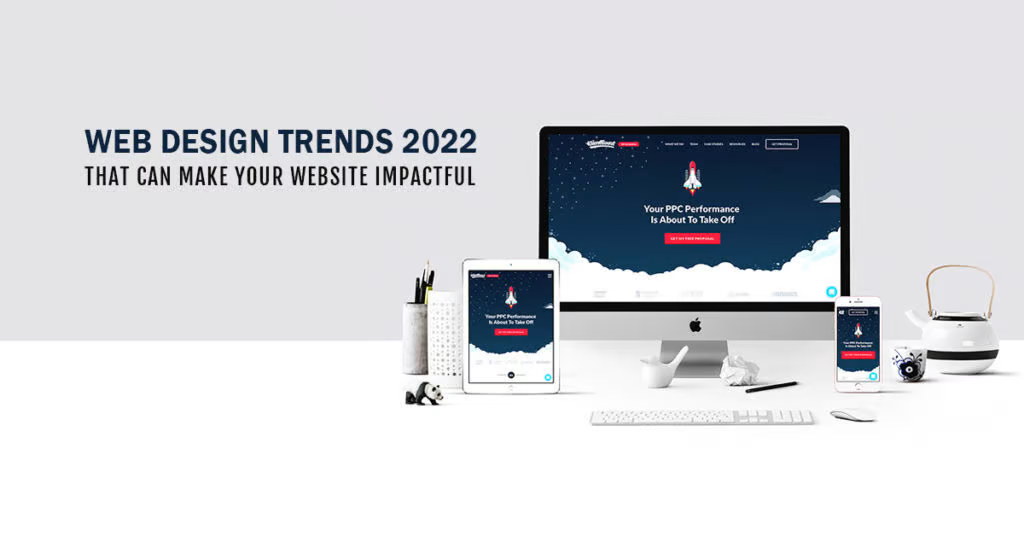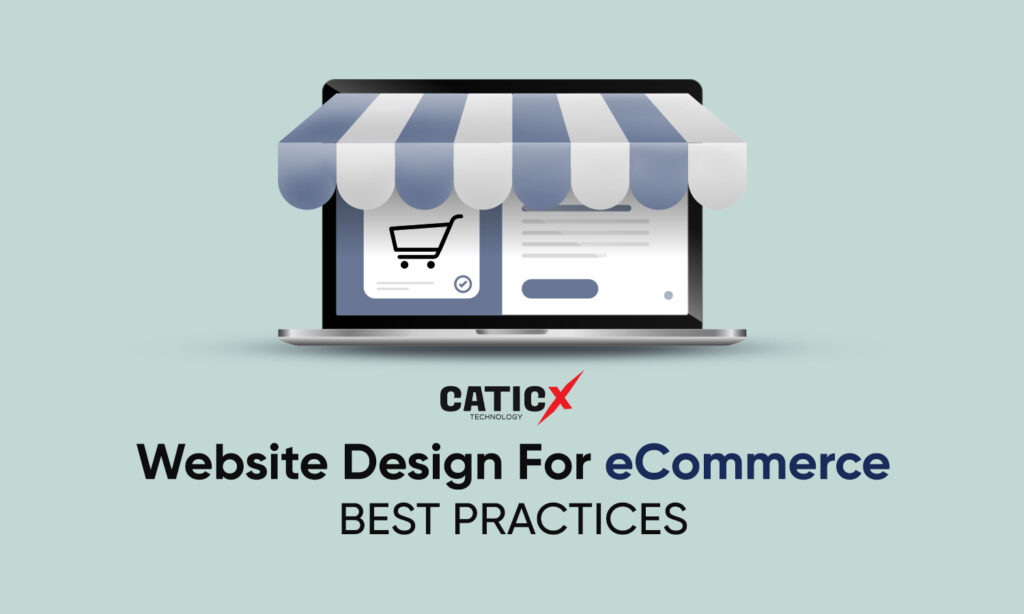
In the world of web design, staying updated with the latest trends is crucial to ensure your WordPress website remains visually appealing, user-friendly, and competitive. As we navigate through 2024, it’s essential to take a closer look at what’s trending in WordPress web design and what trends might be losing steam. The hottest web design trends making waves in the WordPress community and some practices are gradually fading away.
The Hot Trends In Web Design:
Dark Mode Dominance:
Dark mode has surged in popularity, offering a sleek and modern aesthetic while reducing eye strain, especially in low-light environments. Many WordPress themes now come with built-in dark mode options, catering to users’ preferences.
Minimalism with Depth:
Minimalist web design continues to thrive but with a twist. Designers are adding depth through subtle shadows, layers, and depth effects, creating visually engaging websites without sacrificing simplicity and clarity.
Immersive Multimedia Experiences:
Incorporating multimedia elements like videos, animations, and interactive graphics enriches user experiences. WordPress plugins and themes are increasingly focusing on the seamless integration of multimedia content to captivate visitors.
Bold and Playful Typography:
Typography is becoming more expressive and adventurous, with designers opting for bold fonts, custom typefaces, and playful typography combinations to add personality and visual interest to WordPress websites.
Micro Interactions for Engagement:
Micro-interactions, such as animated buttons, hover effects, and scrolling animations, enhance user engagement by providing feedback and delighting visitors. WordPress themes and plugins are integrating micro-interactions to create more interactive and intuitive user experiences.
Accessibility-First Design:
Web design with accessibility in mind is no longer optional—it’s essential. WordPress designers are prioritizing accessibility features, including color contrast, keyboard navigation, and screen reader compatibility, to ensure inclusivity for all users.
Customizable Illustrations and Graphics:
Custom illustrations and graphics add a unique touch to WordPress websites, helping brands stand out and communicate their message effectively. Web designers are embracing custom artwork to create memorable and engaging visual experiences.
Personalized User Experiences:
Tailoring user experiences based on visitor behavior, preferences, and demographics is gaining traction. WordPress plugins and AI-powered tools enable personalized content recommendations, dynamic menus, and targeted messaging for a more personalized user journey.
Trends on the Decline:
WordPress design trends are shifting as some popular styles fade. Minimalistic designs are being overtaken by more interactive elements, while excessive parallax scrolling and animations are decreasing due to performance concerns. Fixed-width layouts are also falling out of favor in favor of responsive designs that adapt to various devices. Staying current means focusing on user experience, accessibility, and fast-loading pages to keep your site effective and relevant.
Excessive Animation:
While animations can enhance user engagement, overly flashy and distracting animations are losing favor. Designers opt for subtle and purposeful animations that complement the content without overwhelming the user.
Cookie-Cutter Templates: Generic, one-size-fits-all templates are becoming less appealing as businesses seek unique branding and customization options. WordPress themes offering extensive customization capabilities are preferred over cookie-cutter designs.
Cluttered Design Elements:
Busy and cluttered layouts are being replaced by clean and spacious designs that prioritize content hierarchy and readability. Designers are embracing white space and decluttering interfaces for a more focused user experience.
Non-Mobile-Friendly Design:
With the majority of web traffic coming from mobile devices, non-responsive and mobile-unfriendly designs are obsolete. WordPress websites that aren’t optimized for mobile performance risk losing visitors and hurting their search engine rankings.
Generic Stock Photography:
Generic stock photos are being replaced by authentic and original visuals that resonate with the brand’s identity. WordPress websites are incorporating genuine imagery, custom photography, and user-generated content for authenticity.
Slow Loading Times:
In an era of instant gratification, slow-loading websites frustrate users and hinder conversions. WordPress designers are optimizing website performance by reducing page load times, optimizing images, and leveraging caching techniques.
Complex Navigation Menus:
Complex and convoluted navigation menus confuse users and impede their ability to find relevant content. Simplified and intuitive navigation menus that prioritize key pages and content categories are preferred for better user experience.
SEO Neglect:
Ignoring search engine optimization (SEO) best practices can hinder a WordPress website’s visibility and traffic. Designers are incorporating SEO-friendly elements, such as descriptive meta tags, keyword-optimized content, and mobile responsiveness, to improve search rankings.
Final Thoughts:
The latest web design trends and practices are vital for crafting impactful and user-centric WordPress websites. With Caticx technology, one of the best web design company in Dubai, web designers can seamlessly embrace hot trends like dark mode, immersive multimedia experiences, and personalized user interactions. By leveraging Caticx’s innovative solutions, they can steer clear of outdated practices such as cluttered designs and non-mobile-friendly layouts. This amalgamation of cutting-edge technology and design principles ensures the creation of compelling digital experiences that not only resonate with audiences but also drive success well into 2024 and beyond.


